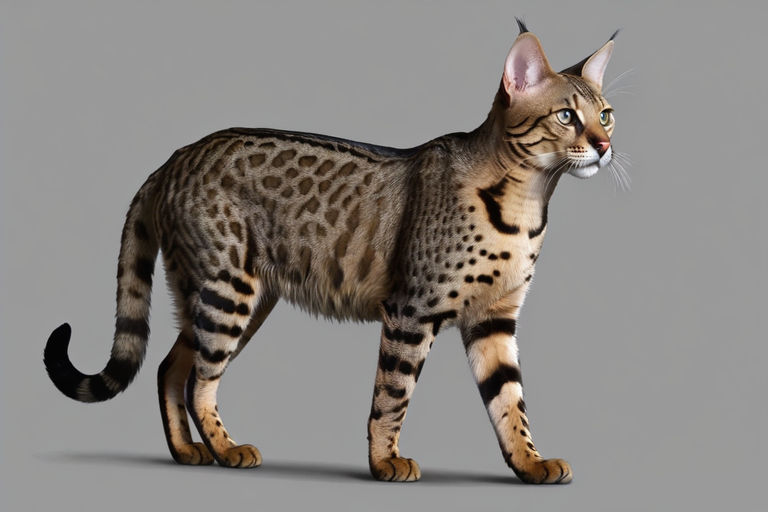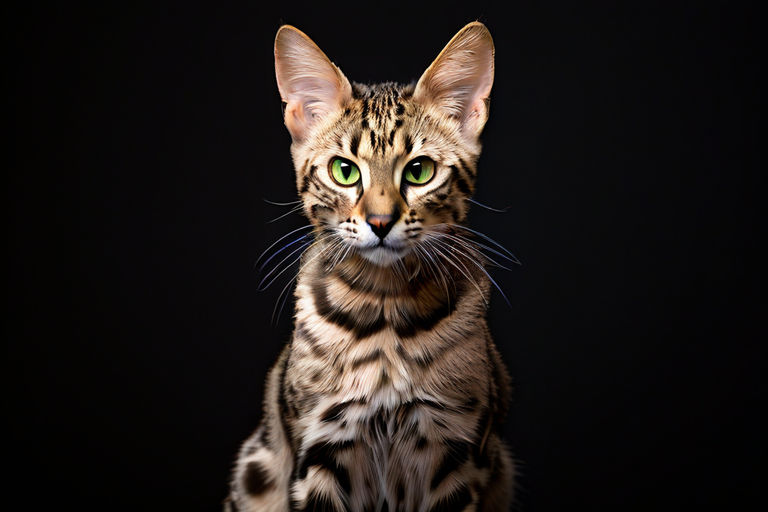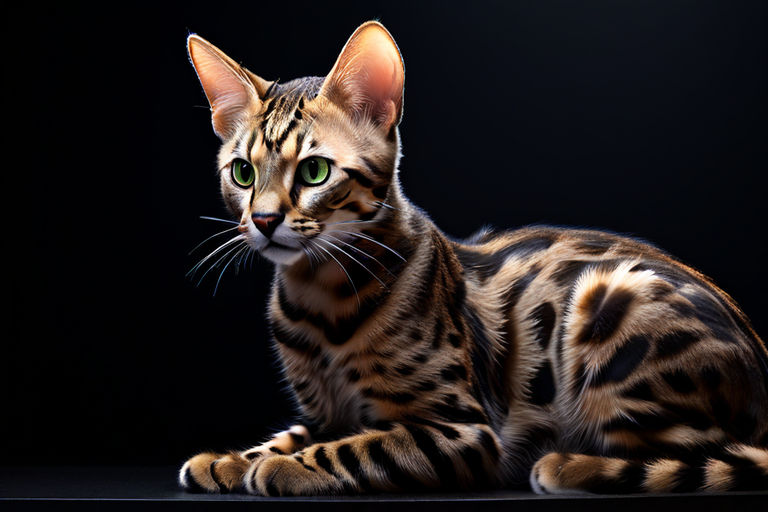Savannah Cat: Exotic and Lively Hybrid Feline
This comprehensive guide covers all aspects of owning and caring for a Savannah cat, from their history and characteristics to their specific care needs and training tips. Enjoy your journey into the exotic world of Savannah cats!
If you’re captivated by the allure of wild cats but prefer a domestic companion, the Savannah cat might be your perfect match. These exotic-looking felines are a cross between a domestic cat and a serval, a wild African cat. With their striking appearance and playful nature, Savannah cats have become increasingly popular among cat enthusiasts. Let’s explore everything you need to know about these fascinating creatures.
Savannah cats are known for their large size, exotic appearance, and energetic personalities. Their wild ancestry gives them a distinctive look, with long legs, large ears, and a sleek, spotted coat. However, owning a Savannah cats comes with unique challenges and responsibilities. This guide will provide you with all the information you need to decide if a Savannah cat is right for you.
History of the Savannah Cats
The Savannah cats is a relatively new breed, with its origins dating back to the 1980s. The first known Savannah cat was born in 1986, the result of a cross between a male serval and a domestic Siamese cat. This unique hybrid captured the attention of breeders, and by the early 1990s, the Savannah cat had become an established breed.
Savannah cats were recognized by The International Cat Association (TICA) in 2001, which helped boost their popularity. Today, they are cherished for their wild beauty and affectionate nature.
Characteristics of Savannah Cats

Savannah are truly unique, with several distinct traits that set them apart from other domestic breeds. Here are some of their most notable characteristics:
Appearance Of Savannah Cat

- Size: Savannah cats are one of the largest domestic cat breeds. They can weigh between 12 to 25 pounds, with males generally being larger than females.
- Coat: Their coat is short to medium-length and has a striking spotted or marbled pattern, reminiscent of their wild ancestors. Common colors include brown, silver, black, and smoke.
- Ears: They have large, rounded ears that are set high on their heads, giving them a keen, alert look.
- Body: Savannahs have long, lean bodies with powerful legs, making them excellent jumpers.
Personality
- Intelligence: Savannahs are highly intelligent and curious. They enjoy exploring their surroundings and can quickly learn new tricks and commands.
- Activity Level: These cats are very energetic and playful. They need plenty of physical and mental stimulation to stay happy and healthy.
- Sociability: Savannahs are known for their friendly and social nature. They form strong bonds with their owners and can be quite affectionate.
Caring for a Savannahs

Owning a Savannah cat requires a commitment to meeting their physical, mental, and emotional needs. Here are some essential care tips:
Diet
Savannah cats have high energy levels and require a diet that supports their active lifestyle. A high-protein diet is ideal, including both wet and dry cat food formulated for active breeds. Some owners also choose to supplement their cat’s diet with raw or cooked meats to mimic the diet of their wild ancestors.
Exercise and Enrichment
Savannahs are highly active and need plenty of exercise to stay healthy. Here are some ways to keep them engaged:
- Interactive Toys: Invest in a variety of toys that encourage physical activity and mental stimulation, such as puzzle feeders, laser pointers, and feather wands.
- Climbing Structures: Provide plenty of vertical space for climbing and jumping, such as cat trees and shelves.
- Outdoor Enclosures: If possible, create a safe outdoor enclosure where your Savannah cat can explore and play.
Grooming
Savannahs have relatively low grooming needs. Their short coats do not mat easily, but regular brushing can help reduce shedding and keep their fur healthy. Additionally, routine dental care, nail trimming, and ear cleaning are essential.
Health Care
Regular veterinary check-ups are crucial for maintaining your Savannahs health. Like all cats, they should receive vaccinations, parasite prevention, and dental care. Be aware of potential health issues common to Savannah cats, such as hypertrophic cardiomyopathy (HCM) and certain genetic disorders.
Training and Socialization
Savannahs are highly trainable due to their intelligence and curiosity. Here are some tips for training and socializing your Savannah:
Litter Box Training
Savannahs usually take to litter box training quite easily, especially when introduced to it at a young age. Ensure the litter box is clean and placed in a quiet, accessible location.
Leash Training
Many Savannahs owners enjoy taking their cats for walks on a leash. Start leash training early, using a harness designed for cats. Be patient and use positive reinforcement to help your cat adjust to walking on a leash.
Socialization
Early socialization is key to raising a well-adjusted Savannahs. Expose them to a variety of people, environments, and other pets from a young age. This helps them develop into confident, friendly adults.
Legal Considerations
Before bringing a Savannah cat into your home, it’s important to check the legal regulations in your area. Due to their wild ancestry, some states and municipalities have restrictions on owning hybrid cats. Ensure you are in compliance with local laws to avoid any legal issues.
Savannah Cats Generations
Savannahs are classified into different generations based on their serval ancestry. Here’s a breakdown of the generations:
- F1: First-generation hybrids with a serval parent. These cats are closest to their wild ancestry and tend to be larger and more energetic.
- F2, F3, etc.: Subsequent generations have a serval grandparent or great-grandparent. These cats are more domesticated and may have slightly different temperaments and sizes compared to F1 cats.
Frequently Asked Questions
Wrapping Up
Savannahs are extraordinary companions for those who appreciate their wild beauty and vibrant personalities. Their unique blend of domestic and wild traits makes them a fascinating addition to any household. By understanding their needs and characteristics, you can provide a loving and stimulating environment for your Savannah cat to thrive.
Whether you’re an experienced cat owner or new to the world of felines, the Savannah cats offers an unparalleled experience filled with affection, intelligence, and adventure.
All images in this post were created using AI in Leonardo AI. See more beautiful images of pets at AI Pawsome Art